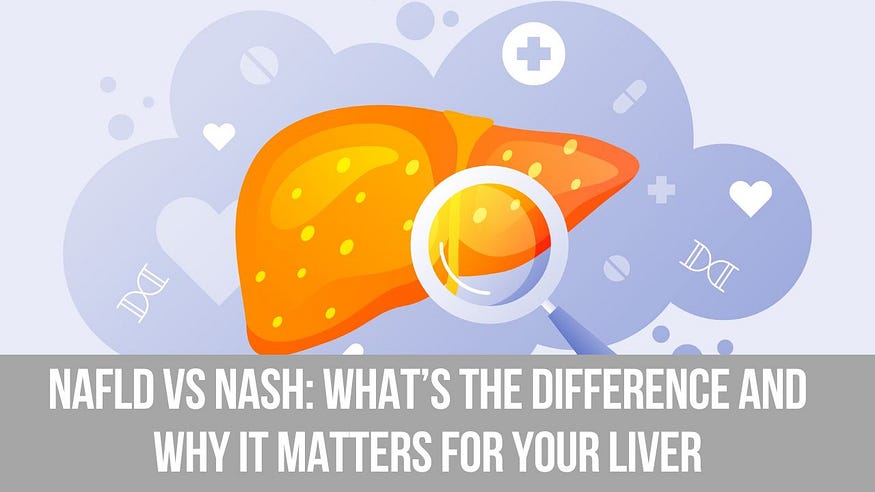NAFLD vs NASH: What’s the Difference and Why It Matters for Your Liver

Your liver is your body’s silent workhorse — it detoxifies your blood, processes nutrients, and fights infections without you even noticing. But what happens when this vital organ starts accumulating fat? You might have heard terms like NAFLD (Non-Alcoholic Fatty Liver Disease) and NASH (Non-Alcoholic Steatohepatitis), but do you know how they differ — and why it could mean the difference between reversible damage and permanent liver failure?
In this comprehensive guide, Dr. Sandeep Pal, a leading gastroenterologist in Chandigarh, breaks down:
✔ The key differences between NAFLD and NASH (it’s not just “a little fat”)
✔ Silent symptoms you’re likely ignoring (hint: fatigue isn’t normal)
✔ Shocking long-term risks (from cirrhosis to liver cancer)
✔ Actionable steps to reverse early damage (before it’s too late)
Understanding the Fatty Liver Spectrum
1. NAFLD: The Early Warning Sign
- What it is: Fat buildup in liver cells (steatosis) without significant inflammation or damage.
- How common? Affects 25–30% of Indians — especially those with obesity, diabetes, or metabolic syndrome.
- Characteristics:
- Diagnosed when >5% of liver cells are fatty
- No liver cell damage on blood tests (normal ALT/AST)
- Often found incidentally during ultrasounds
Real-life case: A 38-year-old IT professional with a BMI of 28 (overweight) had elevated cholesterol. An ultrasound revealed NAFLD — despite zero symptoms.
2. NASH: When Fat Turns Dangerous
- What it is: Fat + inflammation + liver cell damage (ballooning hepatocytes).
- How serious? Up to 20% of NAFLD cases progress to NASH — of which 25% develop cirrhosis.
Red flags:
- Persistent right upper abdominal discomfort (not pain
- Unexplained fatigue (even after sleep)
- Elevated liver enzymes (ALT > AST)
Critical fact: NASH is now the fastest-growing cause of liver transplants in Western countries — and India is catching up.
Why the Difference Matters?
FeatureNAFLDNASHFat AccumulationYes (>5%)YesInflammationNoYesLiver Cell DamageNoYes (ballooning)Fibrosis RiskMinimal20–40% progress to scarringReversibilityFully reversible with lifestyle changesPossible only in early stages
Dr. Pal’s Insight: *”I see patients who assume NAFLD is ‘harmless.’ But if you have diabetes, NAFLD can silently progress to NASH within 2–3 years.”*
Silent Symptoms You’re Ignoring
NAFLD Clues:
- Dark neck patches (acanthosis nigricans) — insulin resistance marker
- Waking up tired despite 8-hour sleep
- Bloating after meals (delayed fat digestion)
NASH Alarms:
- Mild jaundice (yellowish eyes in daylight)
- Spider angiomas (tiny red veins on skin)
- Mental fog (toxins bypassing damaged liver)
Did you know? 70% of NASH patients don’t feel pain — until cirrhosis develops.
Who’s at Highest Risk?
NAFLD Risk Factors:
- BMI >25 (especially belly fat)
- Prediabetes/diabetes
- High triglycerides (>150 mg/dL)
NASH Accelerators:
- Genetic predisposition (PNPLA3 gene variant common in Indians)
- Rapid weight loss (releases fat into liver)
- Processed foods (high-fructose corn syrup fuels inflammation)
Chandigarh-Specific Alert: Punjabi diets rich in parathas, makhan, and sweets double the NAFLD risk.
Diagnosis: Beyond Basic Liver Tests
1. Blood Tests (Often Misleading)
- NAFLD: Normal ALT (<40 IU/L) in 70% cases
- NASH: ALT/AST ratio >1 (but 30% have normal levels)
2. Imaging Gold Standards
- FibroScan: Measures liver stiffness (fibrosis)
- MRI-PDFF: Quantifies fat % accurately
3. Liver Biopsy (When Needed)
- Only way to confirm NASH (checks inflammation grade & fibrosis stage)
Dr. Pal’s Protocol: “For diabetic patients, I recommend FibroScan even if ALT is normal — NAFLD hides easily.”
Treatment: Reversing the Damage
For NAFLD:
- 5–7% weight loss → 50% fat reduction
- Coffee (2 cups/day) lowers fibrosis risk by 30%
- Vitamin E (only if biopsy-confirmed NASH)
For NASH:
- 10% weight loss needed to halt inflammation
- Pioglitazone (diabetes drug with liver benefits)
- Obeticholic acid (new FDA-approved med)
Lifestyle Prescription:
- Walk 45 mins/day (reduces liver fat by 20% in 3 months)
- Eat 1 cup bitter gourd/week (lowers liver enzymes)
- Avoid fruit juices (fructose → fat production)
When to See a Specialist?
Consult Dr. Sandeep Pal if you have:
✔ Diabetes + abnormal ultrasound
✔ Unexplained ALT elevation (>6 months)
✔ Family history of cirrhosis
Early action prevents transplants!
Myths vs Facts
❌ “Only alcoholics get liver disease.”
✅ Fact: NAFLD affects teetotalers too.
❌ “Liver detox drinks help.”
✅ Fact: No supplement reverses NASH — only weight loss does.
Key Takeaways
- NAFLD = Fat; NASH = Fat + Inflammation + Damage
- NASH can progress silently to cirrhosis
- Weight loss is the #1 treatment
- Diabetics need annual liver checks
Your Next Step:
Get a FibroScan + HbA1c test if you have:
- BMI >25
- Waist >35 inches (women) / >40 inches (men)
.jpg)
Comments
Post a Comment